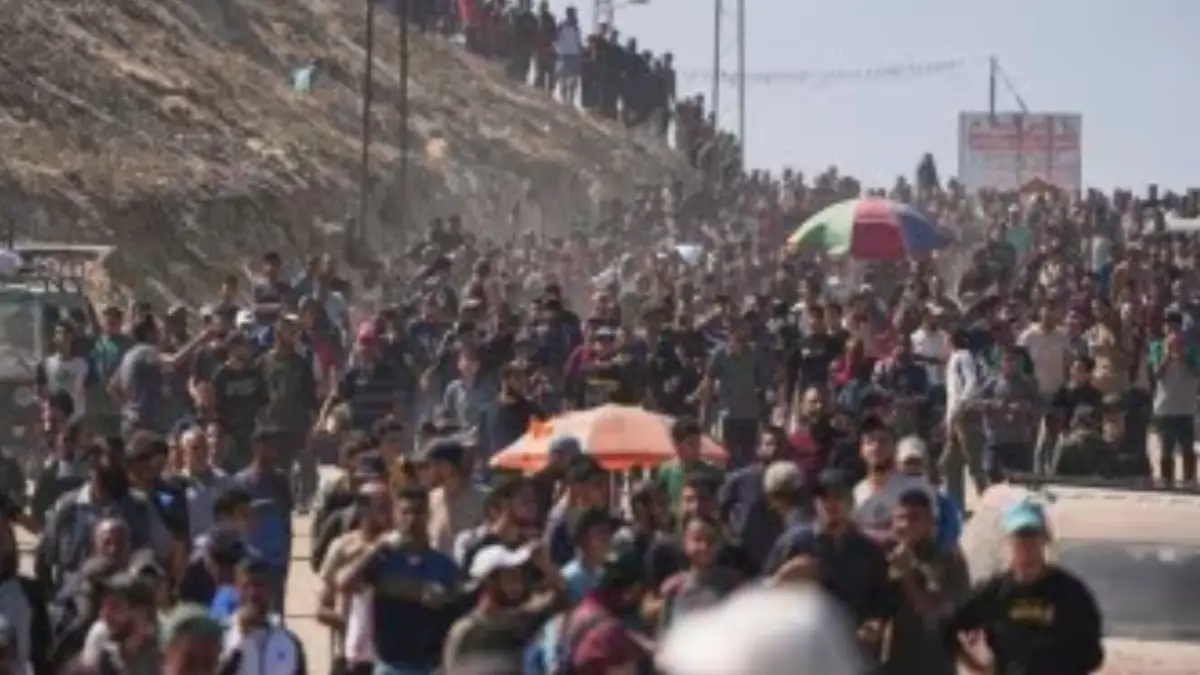In a landmark breakthrough after two grueling years of conflict, all 20 surviving Israeli hostages captured by Hamas during the October 7, 2023, attacks have been released and safely returned home, fulfilling the core terms of a US-brokered ceasefire agreement. The final contingent of 13 individuals crossed into Israel under military escort, capping a series of emotional handovers that included an earlier group of seven. At a secure reception center in Re’im, only immediate family members were permitted to witness the reunions, where scenes of raw joy unfolded: Omri Miran clasped his father Dani in a tight embrace; Guy Gilboa-Dala stepped off transport at Rabin Medical Center-Beilinson Hospital; Ziv Berman flashed a thumbs-up from Sheba Medical Center; Eitan Abraham Mor, a Nova festival security guard, reunited with loved ones; and Matan Angrest, an IDF soldier who marked his 22nd birthday in captivity after his abduction from Nahal Oz at age 20, arrived by helicopter at Ichilov Hospital in Tel Aviv. Angrest later connected via video with fellow ex-hostage Keith Siegel, freed in February, who had long voiced fears for his safety.
Yet the relief is tempered by unresolved grief. Hamas is obligated under the deal to repatriate the remains of 28 deceased hostages still held in Gaza, comprising 27 taken during the initial assault—among them at least 13 killed on the spot—and Inbar Hayman, slain in captivity after her Nova festival abduction. This group includes veterans like Hadar Goldin, whose body has been withheld since his 2014 death in Gaza, as well as dual US-Israeli citizens Omer Maxim Neutra from Long Island, New York, and Itay Chen. Four foreign nationals are also among them: two Thais, Nepal’s Bipin Joshi—a 22-year-old agriculture student snatched from kibbutz Alumim—and a Tanzanian. The Israeli government now lists Joshi and 18-year-old IDF soldier Tamir Nimrodi, kidnapped near Erez Crossing, as deceased, given the full accounting of living captives. Only four bodies are slated for release on October 13, a move decried by the Hostages and Missing Families Forum as a “blatant breach” of the pact. The forum demands swift intervention from Israel and mediators, while a joint task force will hunt for the rest. CNN has noted Israel’s prior assessment that Hamas may struggle to recover all remains.
On the Palestinian side, the exchange has sparked parallel scenes of reunion. Some 250 prisoners—many serving lengthy or life terms—along with over 1,700 Gaza detainees held without charges since October 2023, have been freed by Israel. Buses ferried them to Ramallah in the occupied West Bank from Ofer military prison, where crowds gathered for tearful embraces with spouses and relatives, some after two decades behind bars.
Israeli Prime Minister Benjamin Netanyahu hailed the ceasefire in a Knesset address as a victory that secures Israel’s goals and reunites families, paving the way for unprecedented peace with Arab and Muslim nations. “No one wants peace more than the people of Israel,” he declared, framing the accord as a union of “Abraham’s children” against savagery. Netanyahu pledged enduring commitment to this path.
US President Donald Trump, addressing the Knesset shortly after, lauded the hostage returns after “two harrowing years in darkness and captivity,” dubbing the Middle East “a region transformed.” He spotlighted opportunities to broaden the Abraham Accords—his administration’s legacy of Israel-Arab normalization—and announced plans for an Egypt summit later that day with over 20 nations to shape Gaza’s future. Trump first conferred with hostage kin at the parliament, including Ruby Chen and Ronen Neutra, fathers of the late Itay Chen and Omer Maxim Neutra.
Knesset Speaker Amir Ohana dubbed Trump “the best friend that Israel ever had in the White House,” nominating him for next year’s Nobel Peace Prize and thanking him for backing during Israel’s 2025 12-day clash with Iran. Opposition leader Yair Lapid echoed the praise, calling Trump the “President of Peace” who achieved the impossible, while urging a robust regional bloc at the Egypt talks—inviting Saudi Arabia and Syria—and dismissing former anti-Israel protesters as misled.
Netanyahu reciprocated, naming Trump Israel’s “greatest friend” and crediting him for milestones like Jerusalem’s recognition as capital, the US embassy relocation, Golan Heights sovereignty affirmation, countering UN critiques, the 2020 peace blueprint upholding rights in Judea and Samaria, Iran nuclear deal exit, and anti-Iran operations. He called October 13 an “emotional day,” attributing the globally endorsed proposal to Trump’s “pivotal leadership.”
Trump’s oration veered into personal asides: extolling envoy Steve Witkoff as a non-leaky Kissinger successor after a marathon Putin session; noting Ivanka’s Jewish conversion; refuting Hillary Clinton’s old “personality of war” barb by vowing to halt conflicts; and teasing Netanyahu as a “man of exceptional courage” who’s “not the easiest guy to deal with.” He acknowledged aides like Jared Kushner, Marco Rubio, and Pete Hegseth, blaming speech overruns on Netanyahu’s “brilliant but very long” prelude.
The session saw tension when two lawmakers—Ayman Odeh of Hadash and the party’s sole Jewish member Ofer Cassif—were ejected for brandishing a “Recognize Palestine” sign, contravening rules, as peers chanted “Trump! Trump!”
This ceasefire, born of the 2023 Hamas onslaught that ignited the war, addresses profound humanitarian tolls without fresh military escalations, though echoes of the 2025 Israel-Iran hostilities linger. As families heal, the focus shifts to diplomacy’s fragile promise.
